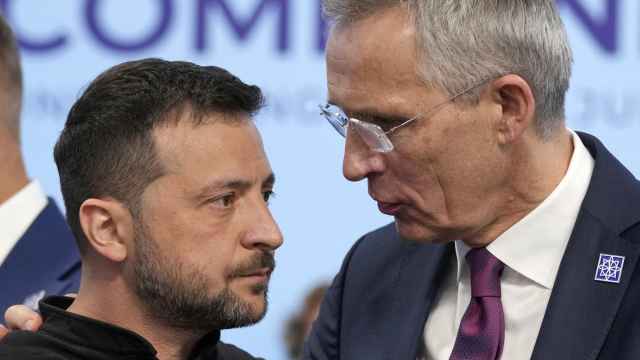Euroclear is ready to begin settling Russian treasury bond trades once it receives clearance from the market regulator, a change that is set to open the market to international investors.
Head of product management Stephan Pouyat said that outstanding legal concerns had been resolved but that Euroclear was still awaiting formal confirmation from Russia's financial market regulator over the correct interpretation of relevant laws.
The Brussels-based bank is the largest provider of cross-border settlement services for securities trades.
"It's important that as far as we stand today, there are no issues as such," Pouyat said. "We are expecting the [Federal Service for Financial Markets] to confirm our mutual understanding [of Russian laws] in the coming days."
Settlement via Euroclear of Russia's locally issued government bonds, or OFZs, is eagerly awaited by foreign investors, as the move will remove regulatory barriers that have kept most mainstream investors out of the market.
Analysts predict that settlement via Euroclear will be the catalyst for tens of billions of dollars of new investment, as foreign participation in the bond market rises to levels seen in other emerging markets.
Euroclear opened an account with Russia's National Security Depository at the end of last month, a prerequisite for settling the bonds that followed a raft of regulatory changes in Russia. However, the account has yet to be activated.
"The reason is that we are still awaiting formal clearance from the FSFM on our interpretation of rules regarding asset protection and settlement finality," Pouyat said.
Euroclear has met extensively with Russian officials in recent months to clarify key legal issues, particularly ones relating to instantaneous settlement of the bonds — so-called delivery-versus-payment — and protection of assets.
The two sides agreed on a common interpretation of the laws that enables Euroclear to begin offering the bonds once Russia's financial market regulator formally confirms the talks' outcome.
Pouyat said that according to Euroclear's discussions with Russian officials late last year, "formal clearance would be imminent."
Although keenly awaited by investors, the onset of "Euroclearability" has been a painfully slow process, requiring a thorough revamp of capital market legislation and infrastructure as part of Russia's drive to convert Moscow into an international financial hub.
"In a sense, it's unfortunate because we are trying to activate the Euroclear Bank service … in the middle of these watershed changes," Pouyat said. "These changes are driven by the local market for the good of the local market and, by extension, for the good of the international capital market. So we welcome them."
A Message from The Moscow Times:
Dear readers,
We are facing unprecedented challenges. Russia's Prosecutor General's Office has designated The Moscow Times as an "undesirable" organization, criminalizing our work and putting our staff at risk of prosecution. This follows our earlier unjust labeling as a "foreign agent."
These actions are direct attempts to silence independent journalism in Russia. The authorities claim our work "discredits the decisions of the Russian leadership." We see things differently: we strive to provide accurate, unbiased reporting on Russia.
We, the journalists of The Moscow Times, refuse to be silenced. But to continue our work, we need your help.
Your support, no matter how small, makes a world of difference. If you can, please support us monthly starting from just $2. It's quick to set up, and every contribution makes a significant impact.
By supporting The Moscow Times, you're defending open, independent journalism in the face of repression. Thank you for standing with us.
Remind me later.






